The Importance of Digital Media Preservation
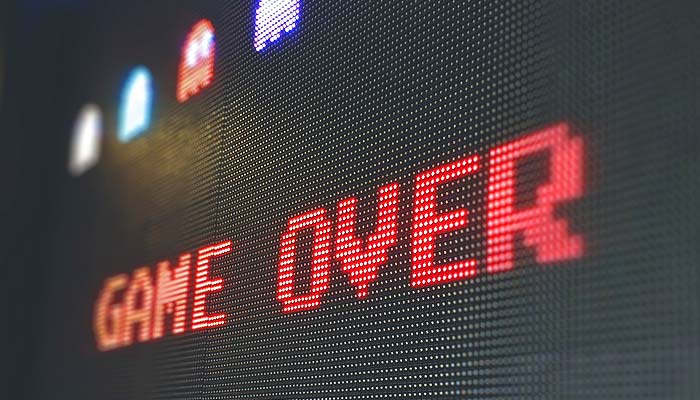
When the conversation of preserving history comes up, rarely are video games brought into the discussion. Despite becoming a major source of entertainment for most people, games often are not perceived to hold the same cultural value other forms of media have. The lack of appreciation for video games has led to them being dismissed as unworthy of being preserved. This attitude towards video games is ultimately what led to the controversy surrounding the PSN store last spring.
On March 29, 2021, Sony announced that it would be closing the PlayStation 3’s, PlayStation Portable’s, and PlayStation Vita’s digital stores. While the PS3, PSP, and Vita stores have obviously not been as popular since the release of new hardware. These consoles are still the most reliable way to play games from that era and serve as a means to play many classic games from the PS1 and PS2 through the digital store and the PS3’s backward compatibility.
The 7th Generation Console wars
Sony’s PlayStation 3 was first released in Japan on November 11, 2006, and in Europe, North America, and Australia on November 17, 2006. It was the successor of the massively popular PlayStation 2. The PS2 to this date is the best-selling game console of all time, selling 155 million units. The only other console to come close to matching this feat was the Nintendo DS, which sold 154.02 million units. However, despite being the successor to arguably the most popular gaming console of all time, the PS3 was met with mixed feelings from the gaming community.
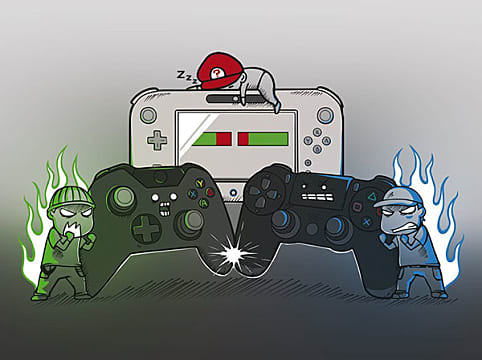
Many factors played a role in the PS3’s infamous entry into the seventh generation console wars. Most notably, its price, late entry, difficulty developing games on it, and lack of console exclusives on release. While it did become the seventh best-selling console of all time, this was understandably a poor showing when compared to its predecessor. It was utterly outpaced by Nintendo’s new consoles, the DS and Wii. The PS3 just barely managed to outsell its other rival, the Xbox 360. Even after the PS4 was released, developers still made games on it until August 2020. The final game to be released on it being Shakedown: Hawaii. Despite its rough entry, the PS3 is home to many unique games currently only playable on it. So, when it was announced that the digital store would be closing (a move Sony has since reversed due to fan backlash), it alarmed video game preservationists.
All good things come to an end
Now, this isn’t the first time a game console has lost support from its developer. Six generations of consoles that came before the PS3 are proof of that. Nor is this the first time an outdated format has been replaced by a more efficient one. In this instance, Nintendo, Microsoft, and PC gaming all serve as good examples of this.
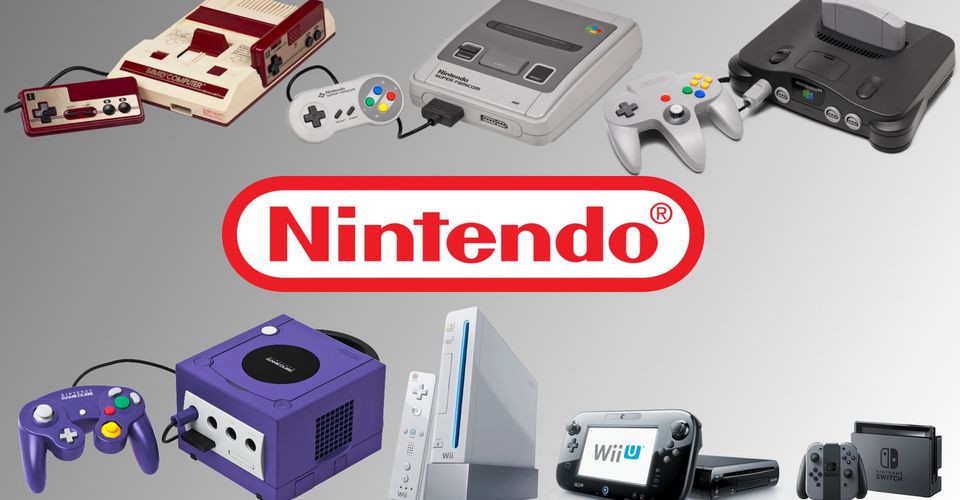
Despite that, Nintendo has almost always made it possible to use old hardware on their newer systems. Their handheld games have very few gaps where it is impossible to play old games. It is possible to play all original game boy games up to the game boy advance. While the Nintendo DS does not support original game boy games or game boy color games. It did support game boy advanced games on the original DS and the slim version DS. They only dropped support of the GBA when they transitioned to the 3DS but kept the support of DS games. Nintendo actually has an evident pattern of how it supports its systems. They typically will support older hardware on the next-generation system and then drop it on the following system. This typically means older games get an additional 6-7 years of extra support. The only time this did not happen was with the Nintendo 64. This is due to Nintendo finally making the switch from cartridges to discs. Sony and Microsoft never had this problem.
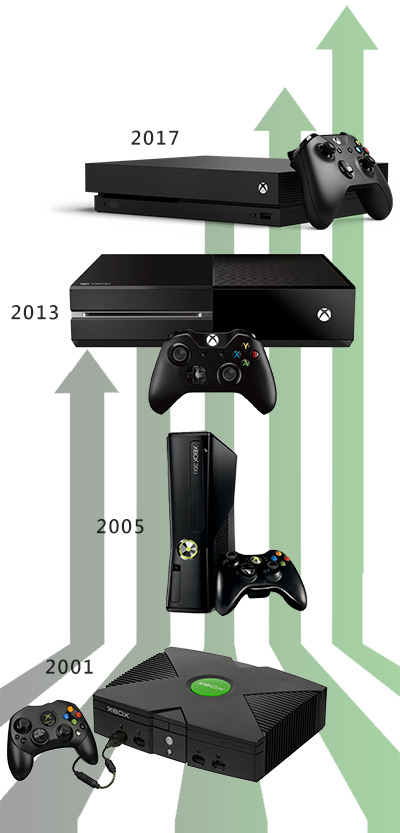
While both Sony and Microsoft had the advantage of having their systems operate with disc in mind from the beginning. They often run into problems when it comes to compatibility between future systems. A grossly oversimplified explanation for why this problem happens is because Sony and Microsoft would change the operating systems between generations. What separates these companies though, is that Microsoft eventually developed a way to emulate older Xbox games on new systems. But this is not a perfect system, and some games have still been left behind. Microsoft has made it clear that they intend to try and bring as many games forward as possible.
Since the PS3, Sony has done very little to make past-generation titles playable on new hardware. Modern Vintage Gamer detailed the company’s history with backward compatibility. But to briefly summarize his findings, essentially all Sony consoles have a different operating system. This means every system has to find a way to compensate for the unique design choices of the past consoles or be designed with past-generation equipment. This is made worse on the PS4 and PS5 systems. While it is possible for these systems to emulate older games, it would likely be unstable with some games. This is due to these systems requiring that games have trophies attached to them before they can be played. Adding trophies to older games can take up to two months when developers have the source codes. Unfortunately, some games during the PS2 and PS1 era have lost their source codes. Without that, it becomes a far more complex process. Had this information been preserved at the time in some form of archive or museum, these company’s would not be in this situation.
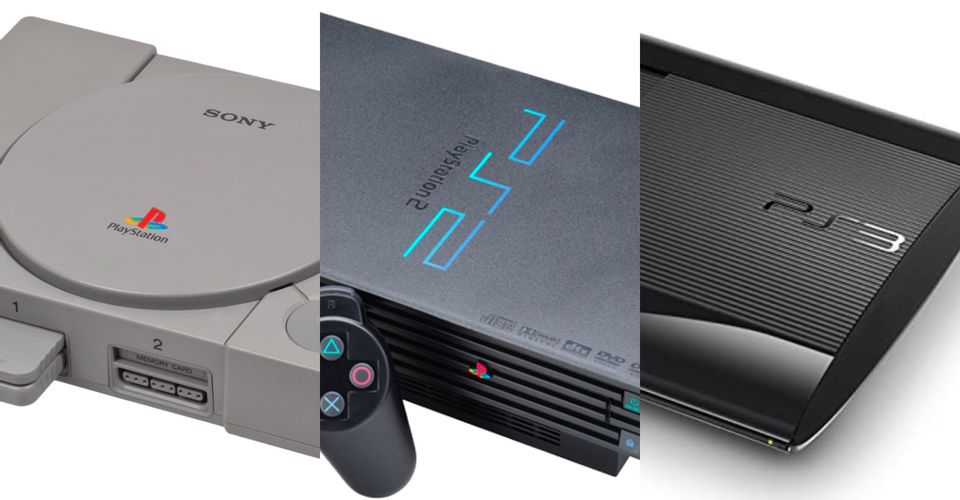
PC gaming has similar issues as Sony and Microsoft. But due to PCs having more customization options, it is typically possible to get older programs running on newer systems. It may take time and effort, but most content can be brought forward. This is one of the luxuries of having a PC.
But video game consoles are typically used by people who may have a causal understanding of electronics. This should not be taken as an insult. Consoles have far fewer features than PCs. This is done to make them more accessible. They require less maintenance while creating a similar experience. Games bought for these unique systems are often optimized for that system.
Part of the reason console gaming is so popular is that companies like Nintendo, Sony, and Microsoft remove much of the busy work to use them. This comes at the cost of customization options. But with the upside of making games accessible to more people. Essentially when gamers choose to play on consoles, they become locked into whatever decision a company makes. This is why fans of consoles are frustrated. As they have been forced to deal with the possibility of losing access to their content.
In addition, video game preservationists have raised concern for the future of gaming, as the 9th generation of consoles has started to make a push for completely digital systems. This is alarming to preservationist as games going completely digital could make it difficult to legally get a hold of some versions of games. Since games are regularly patched and companies don’t always share source codes with companies, disc are the most reliable way to preserve the 1.00 version of games. While, gamers have questioned why they should trust that their purchases would remain safe when a digital storefront could disappear at the whim of a corporation. This new format will effectively put the fate of games in the hands of these companies, which have shown more concern over finances.
It’s so old

In an infamous 2017 interview, Sony Interactive Entertainment’s Jim Ryan discussed backward compatibility with Time magazine. He stated that,
When we’ve dabbled with backwards compatibility, I can say it is one of those features that is much requested, but not actually used much…That, and I was at a Gran Turismo event recently where they had PS1, PS2, PS3 and PS4 games, and the PS1 and the PS2 games, they looked ancient, like why would anybody play this?
Now ignoring the subjective portions of Ryan’s arguments for why Sony hasn’t invested time into backward compatibility. It is essential to focus on the feature being “much-requested… but not actually used much”. To someone uninformed on the functions of the PS3 backward compatibility, this statement would sound entirely reasonable. If a feature isn’t being utilized, why should a company invest money in it?
The problem, though, is this is a misrepresentation of most people’s experience with the system. The PS3’s backward compatibility was unstable on some models. Only the PS3 CECHA01 model was fully backward compatible. While the CECHE01 model was merely a partial emulation. It should also be noted that the CECHA01 model of the PS3 commonly suffered from hardware failure. While it is possible to fix it, not everyone may have the capacity to do so. IGN listed in detail the many issues the original PS3 had when attempting to run PS2 and PS1 games.
While Sony attempted to get the system running, it only managed to get a few games into a fully functioning state. Most other games, while they did run, suffered performance, graphical, and sound issues. This lead to Sony quietly abandoning this feature. Later versions of the PS3 removed backward compatibility for PS2 games entirely. Sony then invested more resources into emulation. This resulted in a much smaller selection of PS2 and PS1 games while giving a more stable experience.
When that is considered, Ryan’s comments about gamers not using the PS3’s backward compatibility feature comes across as disingenuous since that feature was unreliable. This alone should be enough to explain why PS3 owners didn’t utilize the backward compatibility despite asking for it. But once people realized this, they choose instead to use the PS2. With the release of the PS3, the PS2 became more affordable. People who may have missed out on the system initially could now easily acquire it. But utilizing old hardware has its own problems, as these items will inevitably fail.
No worries I bought the disc version
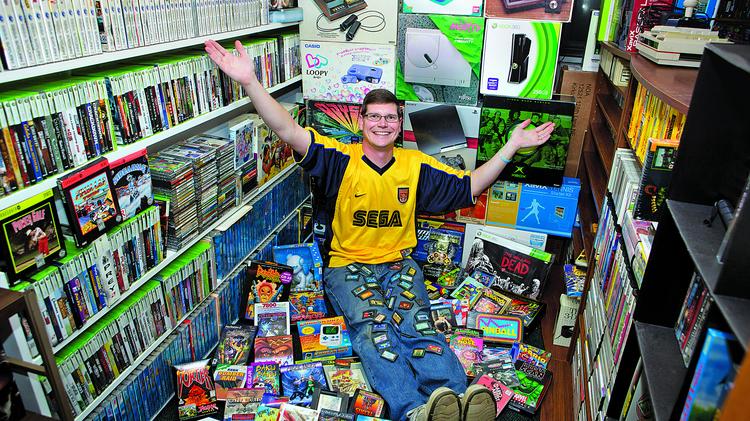
Now there is a subculture within the gaming community that is pro-disc. This is born out of the idea that publishers and developers can’t be trusted with keeping games available to the public. So, they believe the best way to maintain access to the content without interruption is by buying and maintaining the disc.
When looking at how the events with the PSN store played out, their claims hold some truth. Add to the fact that both Konami and Square-Enix at one point lost the source code for certain games. As well as pulled games from digital stores. With events like this constantly happening, it becomes easy to see why some gamers would prefer having a disc copy over downloading a digital version. This has led to many openly discouraging the purchase of digital games.
Disc Rot
However, an aspect overlooked by these individuals is that the games or hardware needed to play them will inevitably fail. No matter how careful one is with these items, natural wear and tear will occur. The most significant danger to disc-based games is disc rot. Now while this can take upwards of twenty to thirty years, depending on storage and handling. Eventually, all disc-based games will fail as oxidation from natural air and sunlight can cause the disc to become unusable. Other factors such as scratches on the disc can occur from handling the item. The threat of scratches is most prevalent for owners of the super slim version of the PS2. This is because some versions of the system actually caused scratches to discs.
Ideally, games should be preserved digitally. This is due to threats with digital preservation being slightly more manageable. When storing a game digitally, the main issue that can occur is the misplacement of digital files or files becoming corrupted. Both of which have occurred in recent history. This is why ideally, the information is stored in multiple locations, and those areas are disaster-proof. Many developers and preservationist say their main concern when preserving the games is making sure they “are safe from fire, natural disasters, dangerous climates, and other security threats.” Also, despite moving towards a digital format, that doesn’t mean the hardware isn’t critical. Developer kits and other physical items such as arcade cabinets can and should be preserved too. This is because they can act as blueprints for reverse engineering these systems and software should the information be misplaced. Despite that fact, this is done less frequently due to the amount of space these items take up. It should also be noted that preserving games doesn’t necessarily mean people will ever get to play them again. The first reason is because the primary intent of preservationism is obviously to preserve the game. But the biggest roadblock is the legal rights forbidding the distribution of these games. This id even worse for licensed games based off of movies or television shows. Companies that make these games usually don’t have the right to reproduce them beyond their contract with the rights holder. But if these games do not get persevered, they will definitely be lost. Meaning all chances of them ever being played again goes away.
The purpose of preservation
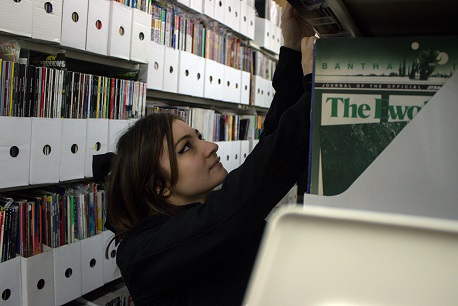
Persevering the past is possibly one of the most critical tasks anyone in the present can take to help the future generation. Many modern innovations are often built on the foundation of the ideas of those who came before us. Without a good collection of historical information, many technical skills and solutions to problems could be lost forever. It is for this very reason that libraries, museums, and digital archives exist.
Archives act as a resource to keep information that isn’t used commonly anymore persevered and can save time for researchers. When considering how many modern games are remakes, rereleases, and remasters, game companies should be far more invested in preserving their past.
Remaster’s Rereleases and Remakes
When it comes to remasters rereleases and remakes, many gamers have conflicting opinions. Some see them as entirely unnecessary. If companies made their systems fully backward compatible or connected the storefronts between all their systems, there would be no reason for them. This way, the original games would be available to everyone no matter which system they’re playing on. But, due to Sony and Nintendo not bringing their games forward, many of these games are left behind. This means gamers that want to preserve their games also have to maintain older consoles.
For this reason, many often have soured opinions on these types of games even before they come out. As many gamers see them as senseless cash grabs. These negative opinions are made even worse because marketing for these games typically uses nostalgia as a motivation for buying them. This may cause annoyance to people who previously owned these games years earlier. These comments mainly apply to rereleases and remasters, as remakes can sometimes be completely different from the original version.
Paid Update
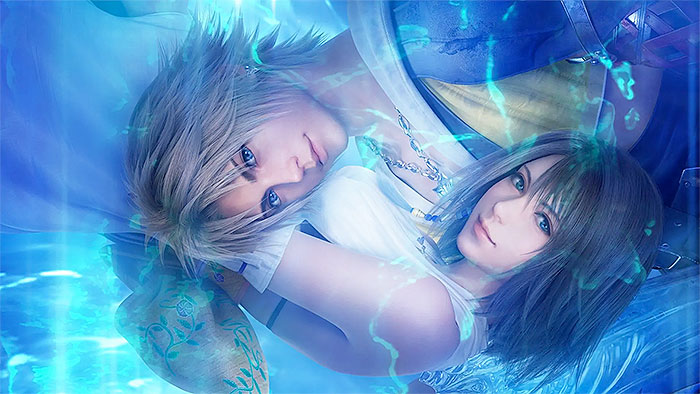
Now many gamers merely believe remasters are simply graphical and performance updates. In some cases, this can be true. But often, there are subtle changes between the original release of the game and remaster. Proof of this can be seen with the Final Fantasy X HD remaster on the PS3. In this version of the game, the music was completely redone. And while some fans had no problem with the change, others did. Now, this could be seen as a minor issue. Problems like this are based purely on a person’s preference and have very little value in objective arguments. But discussions on this topic could still be interesting from a subjective standpoint. Unfortunately, not all complaints about remasters stop there.
Some remastered games, despite being an update of an old game, can actually be inferior. Games like Final Fantasy X HD might offend people because of changes made to the music. While other games like Konami’s Silent Hill HD remaster are actually inferior to the original release. This is partly due to Konami losing the original source code for the completed versions of Silent Hill 2 and 3. This meant that the studio (Hijinx Studio’s) that Konami had contracted to update the game had to work with the incomplete code of these games. Now while they successfully brought the graphics more in line with modern games of that era. The games were released with bugs that the original development team had fixed or had new ones added in. While complaints about visuals may be entirely subjective, the problems of glitches in these games are not.
Possible Solutions
What makes the events surrounding Silent Hill more tragic is these events could have been prevented. If game companies put more effort into supporting archival groups like the Video Game History Foundation, they could become powerful allies. No longer would companies have to worry about preserving the source code of games themselves. They could instead rely on these archival groups. Not only that but because games are digital, this information could easily be shared with others. So next time a company wants to do some form of remastering, they wouldn’t have to worry about looking for the source code.
These archival groups also collect items like magazines, developer’s notes, and promotional material. Besides the potential benefits this could provide to companies, this could also act as a boon to students. Having an open-source of information makes developing the skills necessary to surpass previous milestones possible. Some would say this is the purpose of remakes in gaming. To use the advancements in gaming over the years to provide a better experience than the previous version.
Different, not better
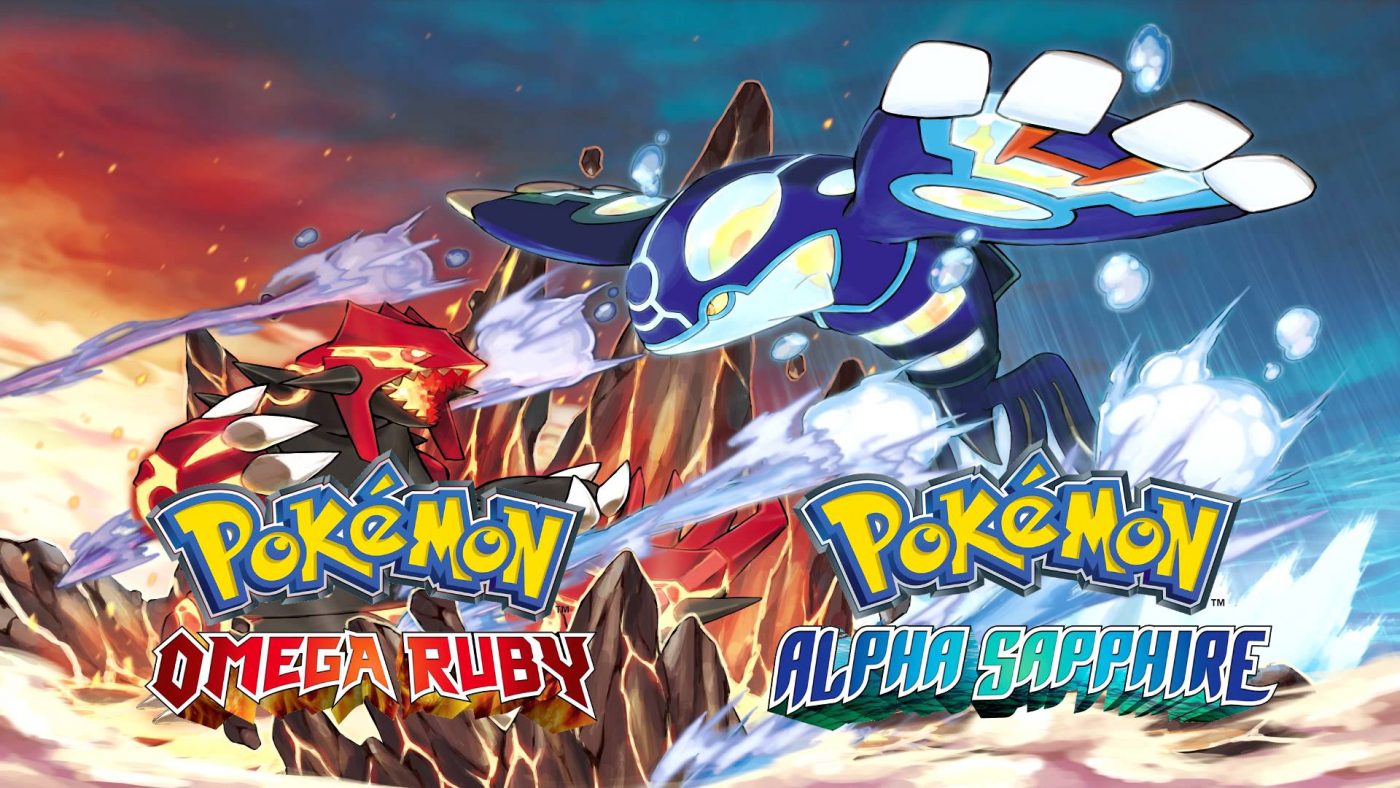
This is why remakes have a unique place in gaming. They often exist to celebrate how far games have come. Or, in some instances, act as an alternate version of a game. This does not mean they are worse or better, just different. However, the problem with remakes is that despite not trying to replace their original version, they sometimes do. This is in part due to there being no way to play the old games, either because the hardware is no longer available or the game itself is missing. Since games, preservationism isn’t prioritized like other artistic works; older games are often forgotten about.
This can best be seen with Nintendo’s Pokémon series. Some games like the original Game boy versions of Pokémon Red and Blue have been brought forward due to Nintendo making it available in its digital store. But games like Pokémon Ruby and Sapphire have effectively been replaced by their remakes Omega Ruby and Alpha Sapphire. Most probably will not complain about these older versions being replaced by these remakes. As, Pokémon Omega Ruby and Alpha Spapphire brought almost all content from the original forward, with the inclusion of new content. The main complaint launched at the remakes of the Pokémon Ruby and Sapphire games has been that some players preferred the original sprite work and original mix of certain songs. While this isn’t a perfect situation for fans of the initial release. At least all the original games content was brought forward. Unfortunately, not all games get this treatment.
This is best seen with Yakuza 2 and its remake Yakuza 2 Kiwami. While Yakuza 2 Kiwami was met with critical praise for its enhanced graphics and relatively faithful recreation of its original release. Kiwami 2 cut some content from its original release, such as certain songs, mini-games, quest lines, and removed the entirety of the Shinseicho district. When considering all these factors, it becomes hard to say if remasters, remakes, and rereleases are better than the original version. It would be far more accurate to say they are simply different and leave the debate of quality to individual games. Since these changes will be perceived differently depending on the person playing the game. This is also why specific versions of games can become highly desired and leads to scalpers buying them up to resell at a marked-up price.
Scalpers
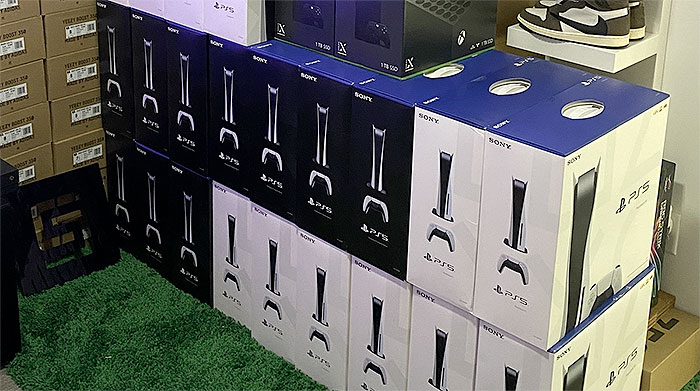
A scalper is a term used for individuals who go out of their way to buy up rare and highly sought-after products with the intent of reselling them later. This practice has been seen multiple times when new consoles or collector editions of certain games come out. More recently, they have been using bots to buy up PS5’s as they get restocked.
When it was announced the PS3’s digital store would be closing, many famous and cult classic games were bought up and sold at higher prices. This is only possible because the games are not being brought forward to newer hardware or preserved. Some have speculated that game companies do not do anything about this to help drive the sales of remakes, rereleases, and remasters. This problem will only get worse as game consoles and discs fail. Considering how Sony has designed its newer consoles, this is going to start happening more often. As the PS3, PS4, and PS5 all have a similar design flaw called the C-Bomb.
C-Bomb
First discovered by, Lance McDonald the C-Bomb is a design oversight in PlayStation 3; that occurs when the C-MOS, aka the P-RAM battery, dies. The C-MOS battery acted as a means for electronic devices to maintain an internal time. Besides making sure the digital clock on the PlayStation stayed in sync, it also served as a DRM (digital rights management) system check. This DRM prevented the system from pirating games, downloading games early, and ensuring the account tied to purchases was the correct one.
That’s why when this battery dies, it effectively locks PS3 owners out of their digital games until they reconnect to the PlayStation network. Now, this is problematic as simply replacing the battery will not fix the problem. Unfortunately, that means many digital-only games on the PS3 will soon be lost permanently. Also, as of April 16, 2021, this feature is confirmed in both the PS4 and PS5. The only difference is the C-Bomb on these consoles will render the physical disc unplayable as well. Currently, the only way to get around this bug is to install third-party software on the systems to remove the DRM check. Ironically despite the DRM check being put in place to act as means to disincentives pirating and hacking games, soon, the only way to keep playing legally purchased games will be to hack the system. This essentially acts as a punishment for those who do not know how to use these methods. While pirates and hackers continue to have free reign over their consoles. The only other option outside of hacking would be to emulate the games on PC.
Emulation
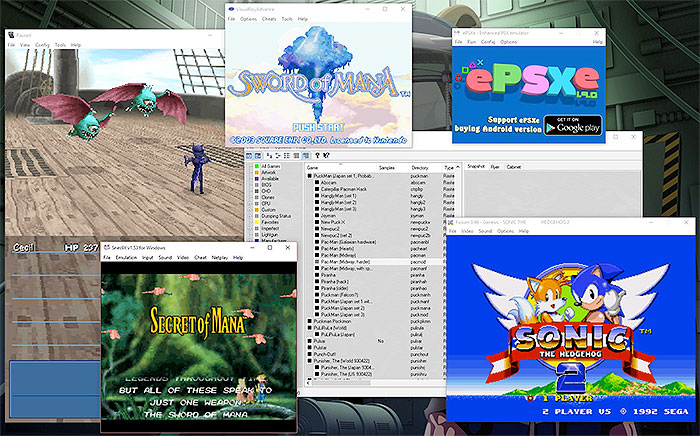
Now emulation is a subject matter that inhabits a legal grey area, as having emulation software is not illegal. This is because emulation software is often created by independent software developers. They can then share it with whomever they want. Also, emulating a game does not actually require pirating games, as it is entirely possible to use legally purchased games with the software. Finally, it should be noted that all three major game console manufacturers have used emulation to bring forward games from the previous generations.
The main problem is that both emulation software and the games intended to run on them are easily shared amongst others. Nintendo, in particular, has filed lawsuits against sites that freely distribute the ROMs of their games. Many have criticized Nintendo for going after these sites. While they do enable piracy, they sometimes are the only way to attain lost media. The prominent argument people have brought against Nintendo is that these sites help preserve video games. Since some companies lose the source code of games or never bring the original versions of games forward to newer hardware. That means older games that are forgotten about are often preserved by these sites alone. The problem here is a failure to compromise. Fans, on multiple occasions, have shown a desire to continue playing their older games. When companies fail to meet those desires, the fans take matters into their own hands. This is what has led to the creation of emulation software in the first place.
Companies claim that the cost of investment for setting up backward compatibility or carrying games forward is typically unprofitable for them. Several factors could play a role in this conclusion. For starters, companies will likely see no profit on game sales. In addition, individuals who use backward compatibility won’t have to pay for the games as they already legally have them in their possession. This would be a similar situation should companies bring digital games previously purchased forward to future consoles.
These issues could possibly be alleviated by keeping these games available indefinitely in a digital form. While companies would undoubtedly see losses initially, they could see a return on their investment later through future sales to individuals who don’t own these older games. Also, if companies get a proper emulation system working, they could possibly carry that forward in the future. While they would need to maintain it. This would be preferable to having to come up with a new way to emulate every new console generation. Whatever decision is made, someone is going to see a loss somewhere. The ideal situation would see both groups work towards a fair compromise.
Piracy “It is a service problem.”

In a 2011 interview at the University of Cambridge, Gabe Newell said: “that the way to end piracy is to provide a service that’s more complete than cracked software, and that restrictive DRM only encourages more piracy.” He said this in response to the criticism that Steam should not make games available in Russia. Developers believed that games would just end up being pirated within that country. This did not end up happening, and Russia quickly became one of the largest users of Steams services. Gabe believes this is because,
Our success comes from making sure that both customers and partners (e.g. Activision, Take 2, Ubisoft…) feel like they get a lot of value from those services and that they can trust us not to take advantage of the relationship that we have with them.
Some have criticized this opinion stating that much of Steam’s success is due to games on the platform being sold at lower prices than other digital stores and cheaper than physical copies of games. Steam made getting games convenient, and this ultimately made people stick with them despite some flaws.
What Now?
As of April 19, 2021, Sony walked back the decision to close down the PSN for the PS3 and Vita. In a statement by Jim Ryan, he claimed that the company
made the wrong decision here… We see now that many of you are incredibly passionate about being able to continue purchasing classic games on PS3 and PS Vita for the foreseeable future, so I’m glad we were able to find a solution to continue operations.
While this was the outcome that critics wanted, many are understandably concerned about the future of their games. Many feel that the comments made by Sony were simply to placate the dissenting opinions. Despite the company saying they are interested in preserving their games. Many do not trust Sony as its history does not align with what they are currently saying.
This is made worse by the fact that Sony even denies the existence of the “C-bomb.” Youtuber Hikikomori Media discussed how individuals reached out to Sony about their concerns over the C-MOS battery. Unfortunately, Sony’s tech support has effectively stated that the problem does not exist in the systems. They say this despite individuals such as Lance McDonald, Hikikomori Media, Does it Play, and Some Ordinary Gamers all proving the problem does, in fact, exist.
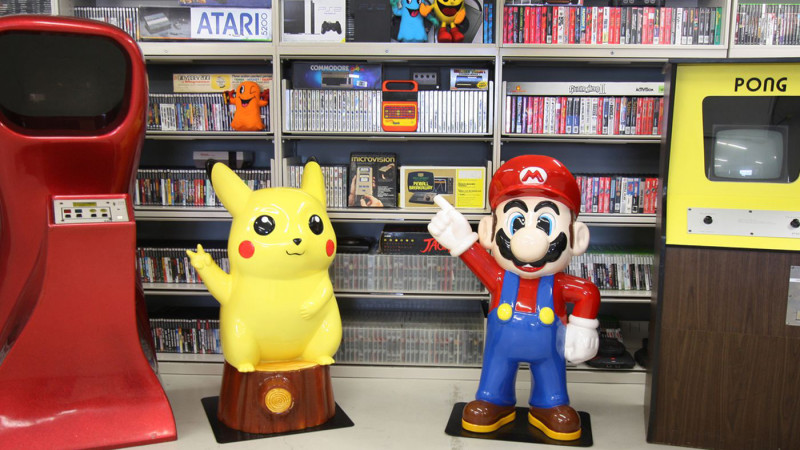
Currently, the future of game preservation is uncertain. While this article primarily focuses on Sony, this does not mean Microsoft or Nintendo are not worthy of criticism. As both companies have similar problems. In fact, Modern Vintage Gamer recently discovered the Xbox series X has a similar DRM problem. And when looking at Nintendo, much of its content is lost due to lack of availability. This is best seen with exclusive content only accessible through Nintendo’s Amiibos. With certain Nintendo Amiibos being rare due to having a limited run or now being out of production.
While there are groups out there trying to preserve this content, the state of game preservation is questionable. Due to hardware design and legal reasons, some video games and their features may eventually be lost forever. Game companies could step in and help. Preserving this content could work to their benefit. But, if they choose not to, that is their business. Since ultimately, most game companies are not in the business of preservation. What should be seen as unacceptable is halting the progress of those who would preserve these games. As they have no business (metaphorically) stopping those who would preserve them.
What do you think? Leave a comment.











I worked on a Navy contract that was part of the internet connection between the DOD and higher education. There were rooms of computers and you would not believe the cheers and happy clapping for programming a personal Happy Birthday message for someone to show up on a screen. That was 50 years ago. The treasures you will have 50 from now will be priceless.
Gaming is its own unique thing and it should be remembered!
I like the idea of future generations being influenced by our classic videogames. Kind of like how classic literature is still really interesting and relevant to today.
I don’t understand why it’s so important to people to be able to play a game a century after it originally released. I get the nostalgia of it, but is that really that important? Are you really going to want to play a Play Station 1 game in 2050? The idea of preserving games the same way we do art and literature sounds like a fine idea, but they aren’t timeless in the same way.
Games get “dated” rather quickly just because of the progression of technology. Not just in terms of graphics either. People that didn’t live through those earliest eras of gaming aren’t going to be able to appreciate them on any really significant level. Sure you have exceptions, but the majority of games are just going to be forgotten. My grand kids aren’t going to care about the games I played when I was a kid unless they are re-released and made relevant again. Innovation and new technology is a crucial part of video games. The entire concept lacks longevity.
Games aren’t intended to last a very long time. Sure you can see that as a flaw, but it’s just a result of technological advancement and obsolescence. A computer gets old and stops working no matter what you do. A book on the other hand can be very well preserved. I don’t mean to belittle the idea of this article, but honestly, we just have to get over it and look towards the future instead of clinging on to games we grew up with.
Expressing you opinion isn’t belittling. You’re entitled to feel how ever you want. That is how we get a discourse going on subjects like this, which is important to understanding these topics. So, please don’t take my rebuttal to your comment as being belittling/defensive.
I largely disagree with this statement for several reasons, some of which I already made in this article.
(1) Anyone can have fun with anything. There is no way to accurately predict someones level of enjoyment without having talked to them first. While there is no denying that older games aren’t as popular as the modern games. This can be due to several reasons like, accessibility, the fact that there not regularly marketed like newer games, or as you pointed out that they look/feel dated. Ultimately that’s not for you or me to decide. I’ve personally never been a fan of Mega man (classic) yet the game has ported/remade for multiple consoles in its original 16 bit design on multiple systems new and old. It like many other games has become a timeless classic that many enjoy for multiple reasons. Games like Mega man have also acted as inspiration for multiple modern games.
(2) You’re right once again in that video games due to being entirely electronic are quickly surpassed by newer content. But, that doesn’t mean they should be completely forgotten. Anyone who is a big FPS fan should know the names John Carmack, John Romero and Id Software. Once again games like the classic doom trilogy and Quake may not be as popular anymore, but much the of code and design philosophy in these games act as the basis for modern shooters in some way. We also see games like Nightmare Reaper and Bombshell that are made on the build engine. Despite the build engine being over thirty years old now, people still use it to develop successful games that people enjoy.
(3) This is probably the most important point to me, but true art is timeless. You mentioned books in your response. Many people don’t see the purpose of reading anymore. They believe that literature has been surpassed by television and other forms of storytelling. And even amongst those who do read many don’t see the purpose in teaching stories like Beowulf and Romeo and Juliet. They believe we should only be reading and studying new and more relevant books. Which can only be said if you ignore how older books helped paved the way for the newer text. Much in the same way older games helped paved the way for newer games. (Gonna make a straw man real quick) Many will say things like “These lessons have been taught better in other places or I’d rather watch the movie, There not as entertaining as movie, and so on.” Games like Metal Gear, Drakengard, Nier, Spec Ops the line, and Final Fantasy have a cultural value that should not simply be forgotten, even if they are surpassed on the technical level, games have an artistic value that should be preserved like any book, painting, film or song.
(4) People are directly inspired by other works. Shovel Knight goes out of its way to only use sound and visual techniques only possible in the SNES. A hat time and Yooka-Laylee are directly inspired by the N64 era of platformers.
The reason I responded to you so extensively is because your comments mirror Jim Ryan’s. Which I feel these comments can only be made when someone doesn’t acknowledge the cultural relevance that games play in our society now.
I miss games made by Gameloft for my old flip phone, but those games are lost. And now all these online only games… they can only be archived by video of someone playing them. Sad, in my opinion.
Most console stuff is safe enough because the games have been dumped and people have been collecting them for years. The stuff that’s really disappearing in mass quantities are early computer games. Most of them sold in baggies on floppy disks at trade shows. There’s a place called The Videogame Preservation Society backing them up but they’re underresourced so they’re only saving a fraction. Japan has pretty high humidity and media rot is a major issue so most of them have been lost already.
Another medium where tons of games have been lost is phone games. All those semi-smart phone games that came out in the 00’s. Lots of Capcom, SNK, Konami franchise games for instance only available via download on servers that are long since shut down.
I’ve been playing video games since I was 3 years old. I’m now 16 and it never crossed my mind to collect the history of games.. This is a great idea.
I think the most volatile of videogames are those from early cellphones… both Western but especially the Asian ones.
I hope one day when the first generation of great retro game collectors/video makers gets old they work together to create a massive musem out of their collections. Everything from rare and peiced together hardware like the sony playstation prototypes (the snes ones), working US region N64 DDs, NIntendo world championships carts, and even virtualboys/sega 32x systems.
A storm is brewing as far as video games that are going to be lost in the future with all of the digitally distributed games on modern consoles. Are you going to be able to even play these things in 20 years? Are people going to be selling system hard drives with a random assortment of 50 or 60 downloaded games? What about games that need company-controlled servers to play? Those games are absolutely gone when the servers are turned off unless someone puts in the grueling time to emulate the server software (which rarely happens outside of a handful of MMORPGs).
Durty pirates like me with our emulators and ROMs are preserving culture.
Someone should start a foundation for forgetting video games. There are more that need to be forgot than need to be saved these days. Especially with all the shitty indie 8bit games.
Hmm… Great article. I don’t play video games much… I do appreciate the impact on our culture tho.
Much like skateboarding became its own culture spawned from a novelty item on part with yo-yo’s.
Future virtual-reality users should have a historical idea of where it all comes from.
I think Emulation is doing a lot to erase these issues because it’s not only preserving the games but ensuring they can be played on PCs to get around the limited life-span of the hardware. Especially with a lot of emulators coming closer to perfection
I like to preserve my game collection, so I ditched all those physical consoles/discs/cartridges. I have all the best games from Nes up to ps1 stored on hard drives and they’re all perfectly playable on the Pi 3.
I also have faith in the hacking community so I’m sure all patches of modern games won’t be lost after the servers go down.
This doesn’t really affect me. I play games, beat them, then trade them in so I can move on to the next. I’m not really a collector, just a player.
I would make the case it does affect anyone who engages with games. While it hasn’t occurred yet many companies are making a push for digital only games. That already affects you as if that becomes and industry standard you cannot trade games in.
You could possibly use some form rental service like PSN Now, but if a game suddenly gets pulled from the service you won’t be able to play it. Or if a game never makes it on the service due to legal reasons then you won’t be able to play it.
There’s also games like Hexen 2 (it’s a really old PC shooter) but due to publishing rights for the game, there is currently no legal way of getting a hold of it. Meaning this game could possibly be lost forever.
A recent event that occurred is Ubisoft just shut down might and magic 10. Because they did this, the people who purchased the game and its dlc can no longer play the main campaign or the online. This gets worse when you consider the fact that you can still purchase the game on certain sites or stores. People uniformed by the events have now essentially bought a very expensive paper weight, that depending on where they bought this game from, they might not be able to get a refund. Had Ubisoft made the source code available the players could set up their own online server, but Ubisoft didn’t.
You may never experience any of these situation, and should find your self in such a situation you might get over it. But, simply put its naive to think none this effects you. The only people who aren’t effected by this are people who don’t play games (and I find that to be a bit of a stretch in logic).
IMO if you own the game you should be allowed to pirate it (For emulation).
For example, I own Majoras mask, Ocarina of time and Donkeykong 64 for the n64. I DID own a n64 but it died on me. So now I emulate them on Project64.
I don’t consider that wrong.
Roms and emulation is only temporary preservation. While piracy is something I don’t condone or condemn, it isn’t the best way to preserve game history. If we actually want to preserve games and gaming history, there needs to be physical libraries with physical consoles and games. Along with digital copies.
The fact that most games need day one patches is basically confirmation that they will be lost to time, one of sony’s biggest selling points for the PS4 was that it did not have any intrusive DRM or mandatory online requirements, too bad most games do.
Thats why i hate online games. I dont wannt to love an online game simply because someday there will be no possibility of playing it ever again.
Don’t buy the digital ps5.
This observation all well and good, but my question now is what can we, as consumers, do to improve the state of game preservation?
Someone mentioned it farther down in the comments, but getting games put in the public domain like books, movies, and television programs would help. Changing the attitude of the public would help as well. Many people see games as toys and not art. This is part the reason games don’t have the same extensive protection under law when it comes to preserving them. While some legal battles have gotten them protective rights, there place in our culture is not fully defined which leads to problems. Supporting preservationist groups can also help.
Ima raise my future kids to play the same video games I grew up playing fron super Nintendo all the way to ps5.
Its unfortunate that many people still don’t see video game as a legitimate art from and dismiss them as juvenile entertainment. Its reassuring to see people like this preserving what to so many of us was childhood. All the new shit lives in digital storage so there will be no need for this kind of thing.
My first game system was Atari, then I got a Nintendo. I love old games. If we didn’t have them, then games wouldn’t be what they are today. Imagine if there was no Mario? No Sonic? I think the gaming industry would be very different. Thank you to all the people who gave us retro games!
Films are hard to presever, but video games are digital by nature, there isn’t much danger of losing them, nonetheless, literature is worth preserving and in danger.
Inspiring me to become more of an archivist for the related media and surrounding development of my favorite game. I’m glad people are taking the steps to archive and preserve game history. It’s an art form, and having it be around for the next generation is important.
I think included in every game’s development should be a plan for that game’s ‘retirement’. And by retirement I mean ‘when the game will no longer be sold’. For example, for online games, that could mean 15 years after first release the game’s source code and assets released open source into the community, to let the gaming community takeover maintaining the game (through either just simple updates or emulation if necessary) to keep it playable, and finding servers to host the matchmaking, etc.
We take games for granted. I cant even imagine days when they didnt exist .
This makes me worry about my cartridges of Phantasy Star I and II. I’m worried the battery will burst and damage the game.
If the games entered the public domain when they became unplayable due to failing physical parts, there would probably be more people interested in the games preservation. Most of the age old games of the past are still here because of “piracy” in the form of dumps.
The thought of my steam library going poof, makes me a sad panda. I do need to replay sc2 20 years from now.
It’s a shame. Emulation have to preserve this game through ROM sites.
I mean how reliable are game servers that are not in use and lack of investment to store them in storage that will eventually die. We can create redundancy by having tons of copies of games but many games don’t have that following but certain games like Pokemon red will always have that following.
There will be a day where the Pirate Bay edition of a game will be the definitive edition.
They should build a video game museum where people can go and actually see all these pieces of history. And maybe if you pay extra they will allow you to play it once if you want to feel nostalgic.
Problem with digital download is that your games are forever tide to the console you can’t trade in console with out trading in your digital library + dlc as well.
It’s time to call congress and enact a video game preservation archive for the national archives.
The idea of archiving and preservation is important.
I’ve always wondered if there would ever be a video game themed history class.
i already don’t like the direction video games are taking. No instruction booklets. DLC. Overly complicated controls. Not my thing anymore.
Very skeptical of what will eventually happen to all those classic gaming arcade machines and the other timeless gaming pieces.
We’ll have AI within the next half-century that could scan any game, and recreate it without any network restrictions or whatever. They’ll literally tear apart the game, and reprogram it without any DRM shit. They’ll also be able to scan any hard drive and retrieve them that way. I’d say as long as its stored digitally, its probably going to be preserved eventually.
Video Game Devs beware: All the bugs in your game will forever be documented
The thing about Panzer Dragoon Saga is that the source code was lost, and source code preservation I think is also an important topic to bring up. After all, Pong lost it’s source code.
It is completely unacceptable for my digital purchases to not carry over to the next generation. Especially when often times the digital version costs significantly more.
Terrific article! This is the type of info that should be shared
around the internet
I would note (though this is not really in video games but in music), that there is a glut of music from about 2002/3-2012 that is difficult to find because the medium to listen to it during this time was in flux. Before, it was disks/records; after, it was downloadable on your phone or computer. In this decade span, discs were seen as a bit antiquated, but digital technology was underdeveloped and less accessible to our technology today (think MP3 players and iPods). This works out to your point toward preservation efforts.
Extremely detailed article. Really loved it.
Great article, I can tell by the level of detail that you’re really invested in this subject.
It’s interesting to consider why preservation for more traditional forms of art seems so much more important than video games. Though I’d argue that you see the same flippant attitude towards comic books, perhaps only now changing, which makes me wonder what makes some forms of art less valuable than others?
I also think this discussion could be extended to the recent dropping of Flash from Google Chrome, and the hundreds if not thousands of Flash games that have become unplayable. Now, did I regularly play Flash games before Chrome dropped its support? No. That was something I did a lot as a kid, but not so much now. But my argument is that real people invested hours of their time and scores of creative energy into making something that other people would enjoy. Those people and their art is now lost, through no choice or fault of their own, other than using technology that was a product of its time. Google decided that their art wasn’t worth existing anymore. All media carries value, and losing all copies of a work irrevocably and forever is a loss for humanity’s collective body of knowledge, however small.
Update: Sony patched the issue involving the CMOS battery. (9.0.0 patch) So it is now possible to continue using games on the system even if the battery dies or should the console lose connection to the PSN. I have not seen any sources if the console can play movies though.
Excellent article and a great discussion. I recently read another essay on video game preservation specifically focused on how much is at stake and how much is already lost.
My takeaway from all of this alarming information is that there needs to be a more concentrated and coordinated investment and preservation than what currently exists. I don’t know if this takes the form of a large non-profit formed by various console makers/developers or a global investment fund spearheaded by some billionaire/government – who knows; however this would require transparency among developers and a commitment to the greater good for the preservation of this specific media.
Video games should be considered as artifacts in their own right. As books have become entangled in the digital media era, so too have video games. We must not embed such preservable artifacts when we engage with the digital world.
Preserving video games is also a valuable method of eradicating the superiority complex a lot of the gaming community harbors. I have frequently noticed some of my more experienced gaming friends bragging about having access to games that my amateur friends do not. This disparity in the community does nothing but create unnecessary discord.
I love this piece, as I am passionate about archiving games and game experiences. We need more lending libraries that stock old hardware (and adapters) so people can re experience these cultural artifacts. We keep them alive by playing. And while emulators are a stop-gap, they don’t replace the material experience of holding specific controllers, waiting for load times and the embodied experience of games.
Gaming is its own unique thing and it should be remembered!
You might also be interested in the Play It Again project happening in Melbourne, Australia, which combines the digital preservation of games from the early 90s with a social history/memory project to try and collect and preserve the cultural, social and physical context of how/where/why the games were played. There’s more at acmi.net.au/whats-on/play-it-again-preserving-australias-videogames-from-the-1990s
I can’t wait to see how digital archiving becomes a predominant part of curation and gallery work!